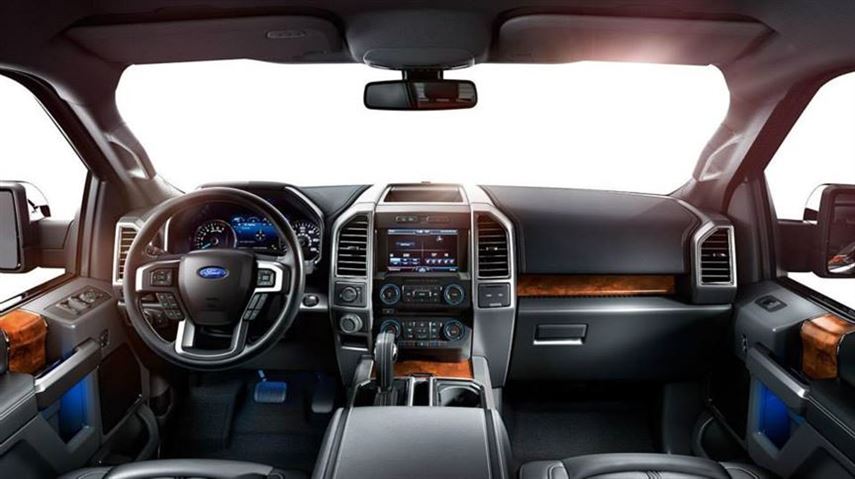
Vehicle crashes happen unexpectedly and also even to the most mindful chauffeurs. That’s why it is essential to carry insurance on your lorry. However, if you’re a rideshare chauffeur, do not make the mistake of presuming your individual insurance or employer-provided business insurance offers full protection in the event of an accident. Instead of relying upon common coverages when you’re driving for a firm like Uber or Lyft, go with added rideshare insurance. Read in advance to find more regarding how rideshare insurance jobs and also whether you should buy this supplemental insurance coverage.
What is rideshare insurance?
Rideshare insurance is supplemental protection that loads the space in between your employer-provided insurance and your personal car insurance. Personal insurance policies do not cover the transportation of paying customers from area to area, and employer-provided policies commonly just cover the minimum and also established constraints on when you are covered. As an example, Lyft insurance and Uber vehicle driver insurance just extend additional protection during particular periods, so if you, your car, or other people are injured beyond those home windows, you may incur expensive out-of-pocket costs as a result.
Though rideshare motorists are not legitimately needed to purchase added protection, they can choose to include rideshare insurance for included protection from mishaps that create damages or injury to themselves or third parties. Rideshare vehicle drivers are frequently when traveling; driving is their resources, so it makes good sense that they ought to invest in more substantial than coverage than the typical traveler.
Who needs rideshare insurance?
If your task consists of driving paying customers from one area to one more, after that it is recommended for you to acquire rideshare insurance. Because you’ll be left with durations of non-coverage if you rely only on your personal and business auto insurance policies, rideshare insurance offers the extra insurance coverage needed to maintain you secured at all times.
Company insurance policies do not maintain rideshare motorists covered from end-to-end, however instead only encompass you and your lorry while in the procedure of grabbing and also handing over a customer. Ridesharing businesses like Uber and Lyft normally divide coverage periods into the following groups:
- Offline: When you’re not logged in to your rideshare driver app or you’re using your vehicle for personal business, you are not covered by Uber car insurance or Lyft insurance. Instead, offline driving is typically covered by your personal insurance policy.
- Period 1 – Waiting for Request: If you’re logged in for work with your rideshare company but you have not been assigned a customer yet, you are ineligible for employer-provided coverage. And since you’re technically on the clock during this time, your personal insurance is also likely to be inactive. This leaves a gap in your insurance coverage, making you and your vehicle vulnerable should an incident occur.
- Period 2 – On the Way to Pick Up a Customer: Your commercial insurance kicks in once you accept a customer and start driving to pick them up. However, even though you are covered during this period, rideshare companies tend to only provide limited liability insurance. Both Uber driver insurance and Lyft insurance provide coverage of $50,000 per person, $100,000 per incident and $25,000 for property damage.
- Period 3 – Ride in Progress: Like period two, you’re also covered by your commercial auto policy after you pick up the customer and for the duration of the ride. Upon dropping off your customer, you return to period one status, where you most likely do not qualify for either your personal insurance coverage or your employer-provided coverage.
The top rideshare insurance companies
Most of the most effective insurance carriers use rideshare insurance. Sometimes, insurance companies offer a different recommendation, while others merely include a TNC expansion (Transportation Network Firm, also referred to as a ride-sharing business) onto your individual car insurance plan. A few of the leading carriers for rideshare insurance include:
- Allstate ride for hire endorsement
- Geico rideshare insurance
- State Farm TNC driver coverage endorsement
- Farmers rideshare endorsement
- USAA rideshare endorsement extension
- Progressive rideshare insurance
Rideshare insurance is not readily available in every state, so it’s essential to research various service providers to identify whether or not this supplemental coverage is an option where you live. If you reside in a state where rideshare insurance coverage is not available, you must think about purchasing commercial insurance to keep you secured whatsoever times.
How much does rideshare care insurance cost?
Protection differs from one state to another and also prices rise and fall based upon your driving history, geographic place, credit rating, and also other variables that are normally considered when establishing your car insurance premium.
See below to check out the distinctions in between Transportation Network Company policies for these car insurance providers, consisting of states that supply the policies as well as the increase in superior rate with included coverage:
Allstate
- Type of coverage available: Ride for hire endorsement
- States available: Arizona, California, Colorado, Georgia, Illinois, Indiana, Kentucky, Minnesota, Oklahoma, South Carolina, Tennessee, Texas, Utah, Washington, Washington D.C.,
- Cost in addition to personal policy premium: $15-$20 annually
Geico
- Type of coverage available: Ridesharing Policy that replaces existing personal policy
- States available: Alabama, Arizona, Arkansas, Colorado, Connecticut, Delaware, Florida, Georgia, Idaho, Illinois, Indiana, Iowa, Kansas, Louisiana, Maine, Maryland, Minnesota, Mississippi, Missouri, Montana, Nebraska, New Mexico, North Dakota, Ohio, Oklahoma, Oregon, Pennsylvania, Rhode Island, South Carolina, South Dakota, Tennessee, Texas, Vermont, Virginia, Washington, Washington, DC, West Virginia, Wisconsin, Wyoming
- Cost in addition to personal policy premium: ~$25 per month
State Farm
- Type of coverage available: Transportation Network Company (TNC) Driver Coverage endorsement
- States available: Alabama, Arizona, Arkansas, California, Colorado, Connecticut, Delaware, Florida, Georgia, Idaho, Indiana, Iowa, Kansas, Kentucky, Louisiana, Maine, Maryland, Michigan, Minnesota, Mississippi, Missouri, Montana, Nebraska, Nevada, New Hampshire, New Jersey, New Mexico, North Dakota, Ohio, Oklahoma, Oregon, Pennsylvania, South Carolina, Tennessee, Texas, Utah, Vermont, Virginia, Washington, Washington, DC, West Virginia, Wisconsin, Wyoming
- Cost in addition to personal policy premium: ~15-20% above annual premium
Farmers
- Type of coverage available: Rideshare endorsement
- States available: Alabama, Arizona, Arkansas, California, Colorado, Florida, Georgia, Idaho, Illinois, Indiana, Iowa, Kansas, Maryland, Michigan, Minnesota, Missouri, Montana, Nebraska, Nevada, New Jersey, New Mexico, North Dakota, Ohio, Oklahoma, Oregon, Tennessee, Texas, Utah, Wisconsin
- Cost in addition to personal policy premium: ~$15 per month, 8% in California
USAA (only available to US military members and their families)
- Type of coverage available: Rideshare endorsement extension of personal policy
- States available: Alabama, Arizona, California, Colorado, Connecticut, Georgia, Illinois, Indiana, Iowa, Kansas, Kentucky, Maryland, Massachusetts, Missouri, Nebraska, Nevada, New Hampshire, North Dakota, Ohio, Oregon, Tennessee, Texas, Washington, Wyoming
- Cost in addition to personal policy premium: ~$6-$8 per month
Progressive
- Type of coverage available: PA: Commercial policy for Lyft drivers, TX: Personal policy endorsement for TNC drivers
- States available: Pennsylvania and Texas
- Cost in addition to personal policy premium:Calculated based on miles driven while working as a rideshare driver
How to buy rideshare insurance
Some car insurance providers allow you to extend your individual insurance policy or include a new TNC plan with their internet sites or on the internet sites. Others, like Farmers Insurance, need you to call and talk with a representative. When reviewing coverage choices with your insurance provider, make sure to inform them you are working as a rideshare driver.
Frequently asked questions:
Do I need to tell my personal car insurer that I am driving for Uber or Lyft?
If you desire your insurance policy to keep you covered from the start of your workday up until completion, you need to definitely notify your auto insurance supplier that you are a rideshare motorist, so you can add additional recommendations or expansions as required.
What if rideshare insurance isn’t offered in my state?
If rideshare insurance isn’t an option in your state, take into consideration purchasing a business insurance plan. Though commercial policies are much more expensive, they provide the required protection to maintain you as well as your possessions shielded.
Do I really need extra rideshare insurance if I already have personal and employer-provided policies?
Yes, even with both individual plan coverage and employer-provided insurance, you can be left prone throughout specific parts of your day as a rideshare motorist. Rideshare insurance bridges the gap in between those two plans, maintaining you risk-free also when you aren’t in the act of transporting a customer.




